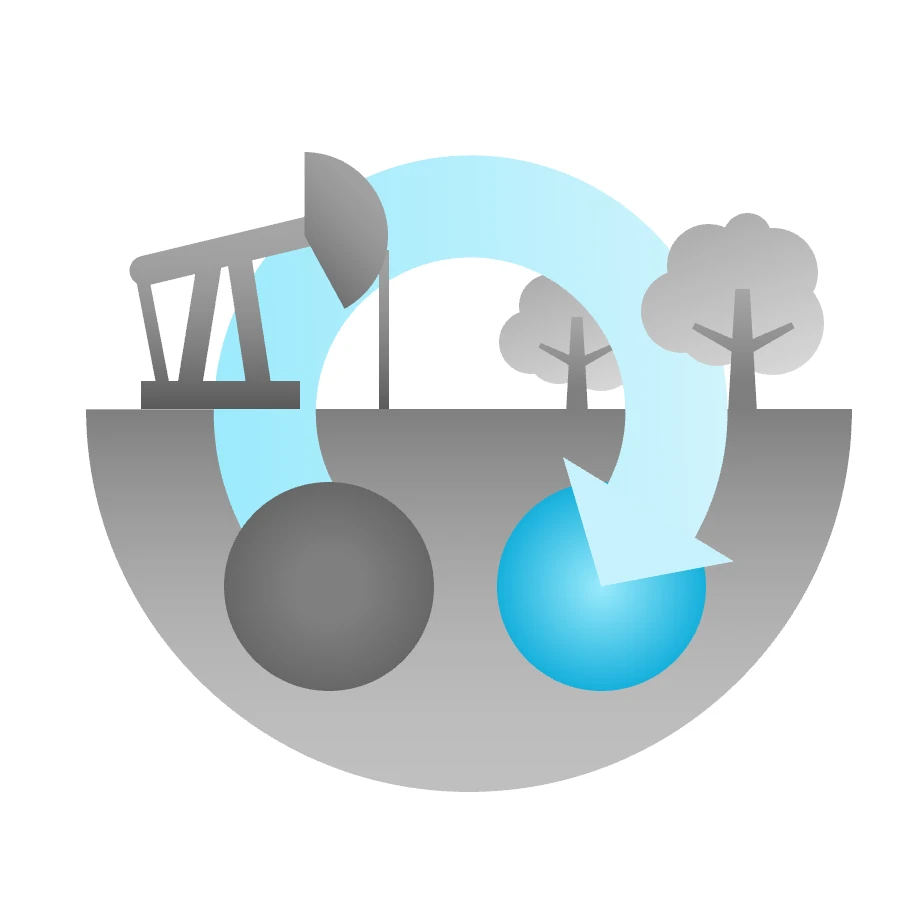Our Research
The reserach in our section falls into three categories: Geo-Energy, Geo-environmental Protection, and Computational Geosciences.
Geo-Energy
Our research on geo-energy explores methods to harness Earth's geothermal energy, advances the storage of liquid hydrogen in the subsurface, and studies the carbon footprint.
Geo-Environmental Protection
Industrial operations and anthopogenic interventions carry risks. Our research explores techniques to mitigate the impact of fossil fuel consumption, and analyzes the consequences of subsurface operations to reduce their future impact.
Computational Geoscience
The subsurface is mostly out of reach and out of sight. To rigorously analyse and predict the impact of subsurface operations, we advance research in data assimilation, optimization and control theory, and numerical simulation.
Our Publications
Below, you can access a list of our section's most recent publications.
- Fanxiang Xu, Hadi Hajibeygi, Lambertus J. Sluys, (2023), Adaptive multiscale extended finite element method (MS-XFEM) for the simulation of multiple fractures propagation in geological formations, In Journal of Computational Physics Volume 486.
- Xiaocong Lyu, Denis Voskov, (2023), Advanced modeling of enhanced CO<sub>2</sub> dissolution trapping in saline aquifers, In International Journal of Greenhouse Gas Control Volume 127.
- Kishan Ramesh Kumar, Matei Tene, (2024), Algebraic multiscale grid coarsening using unsupervised machine learning for subsurface flow simulation, In Journal of Computational Physics Volume 496.
- Ziliang Zhang, Yuhang Wang, Cornelis Vuik, Hadi Hajibeygi, (2023), An Efficient Simulation Approach for Long-term Assessment of CO2 Storage in Complex Geological Formations, In Society of Petroleum Engineers - SPE Reservoir Characterisation and Simulation Conference and Exhibition 2023, RCSC 2023 p.1-18, Society of Petroleum Engineers.
- George Hadjisotiriou, Kiarash Mansour Pour, Denis Voskov, (2023), Application of Deep Neural Networks to the Operator Space of Nonlinear PDE for Physics-Based Proxy Modelling, In SPE Reservoir Simulation Conference 2023 Proceedings Papers, Society of Petroleum Engineers.
- Longlong Li, Mark Khait, Denis Voskov, Kirill M. Terekhov, Ahmad Abushaikha, (2023), Applying Massively Parallel Interface for MPFA scheme with advanced linearization for fluid flow in porous media, In Journal of Petroleum Science and Engineering Volume 220.
- Kishan Ramesh Kumar, Herminio Honorio, Debanjan Chandra, Martin Lesueur, Hadi Hajibeygi, (2023), Comprehensive review of geomechanics of underground hydrogen storage in depleted reservoirs and salt caverns, In Journal of Energy Storage Volume 73.
- Kiarash Mansour Pour, Denis Voskov, David Bruhn, (2023), Coupled modeling of well and reservoir for geo-energy applications, In Geoenergy Science and Engineering Volume 227.
- Elahe Kamel Targhi, Mohammad Emami Niri, Pacelli L.J. Zitha, (2023), Design of Artificial Neural Network for predicting the reduction in permeability of porous media as a result of polymer gel injection, In Geoenergy Science and Engineering Volume 227.
- Kenta Yamada, Bruno Ramon Batista Fernandes, Atharva Kalamkar, Jonghyeon Jeon, Mojdeh Delshad, Rouhi Farajzadeh, Kamy Sepehrnoori, (2024), Development of a hydrate risk assessment tool based on machine learning for CO<sub>2</sub> storage in depleted gas reservoirs, In Fuel Volume 357.








